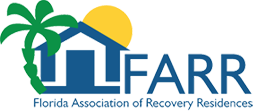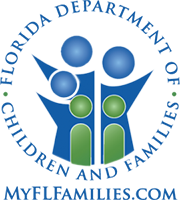Addiction Is a Complex Disease That Often Involves Whole Families
Addiction doesn’t just affect addicts; the painful impacts of addiction are felt by everyone around them. The complex disease of addiction affects families in so many ways that addiction is often referred to as a family disease. At The Source, we believe that healing family relationships is an essential part of recovering from addiction. As soon as all parties are ready, family therapy will play a central role in all treatment levels at The Source.
How Addiction Impacts Families
Witnessing a loved one struggle with addiction is stressful and devastating. Because drugs and alcohol change parts of the brain responsible for decision-making and impulse control, your loved one may engage in behavior that is entirely out of character. They may steal, cheat and lie in all sorts of ways. This behavior further complicates family relationships as trust is broken, and people are left feeling angry and hurt.
Loss of income due to a job loss may create a financial burden for the rest of the family as well. Physical or emotional abuse is not uncommon in a family struggling with addiction because of the irritability and mental instability that can occur when someone is addicted and craving their drug of choice. Unpredictable behaviors an addict may exhibit can leave family members feeling uneasy and even afraid.
How Families Impact Addiction
Families suffer from addiction, but sometimes difficulties within a family are also a root cause of substance use disorder. In these cases, family therapy serves to both heal the damage that addictive behavior has caused within a family and also heal underlying causes of addiction.
We know that exposure to traumatic events, particularly in childhood, has been linked to substance use disorders. Numerous studies have shown a high correlation, up to 59%, between PTSD, mental health disorders, and substance abuse. Those who have survived traumatic events, like abuse or neglect in childhood, often turn to substances as a way to numb painful memories and emotions.
It’s also common for addiction to affect multiple generations within one family. There are hereditary and environmental factors involved in multi-generational addiction. Addiction in a parent can cause neglect of responsibilities, including childcare, work, and relationships. This can create a chaotic environment for kids and increases their risk of struggling with substance use later in life.
How Families Can Help Their Addicted Loved One
Even the most well-meaning family members often need guidance on helping an addicted loved one without enabling them. The best way to help your loved ones is to encourage them to seek treatment. This conversation is best conducted when the addict is sober and in an environment where they feel comfortable. Consider how you want to address this conversation ahead of time and prepare yourself by becoming more educated about the disease of addiction so you can approach your family member in a loving and non-judgmental way.
Keep in mind, The Source has a nationally certified professional interventionist on staff that can guide and assist you in confronting your loved one in a non-threatening way. A successful intervention allows an addict to see how their negative behavior impacts their lives and the lives of everyone around them.
Family Therapy at The Source
The families we work with are often desperate to repair relationships that have been damaged by addiction and alcoholism. Family therapy at The Source is here to help you do just that. An addiction family therapist will facilitate difficult conversations and help heal old wounds. We also connect parents and children of clients with ALANON meetings.
Treating Adult Children of Alcoholics at The Source
Helping adult children of alcoholics (ACOA) work through painful memories from growing up in an unstable environment can go a long way in preventing them from repeating the cycle. At The Source, you have access to individual, family, and group therapy to help navigate your healing. Our one-of-a-kind group focuses exclusively on ACOA issues and mimics a 12-step program your loved one may be following.
To learn more about how The Source can support you and your family, please contact us today. We are eager to help you achieve a healthy and satisfying life, free from addiction.

 The Source quite frankly saved my life and got me back on track, never giving giving up on me. When you are thinking about and looking through all of the different places to go for treatment this is the one that should stand out from the rest.
The Source quite frankly saved my life and got me back on track, never giving giving up on me. When you are thinking about and looking through all of the different places to go for treatment this is the one that should stand out from the rest.




























